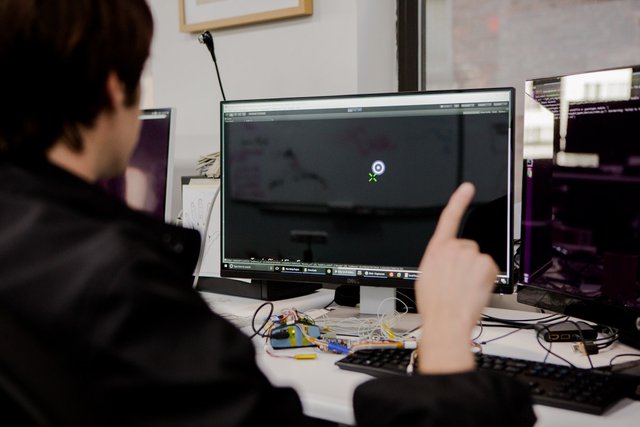BRAIN-MACHINE INTERFACE ISN'T SCI-FI ANYMORE

From Wired
Thomas Reardon puts a terrycloth stretch band with microchips and electrodes woven into the fabric—a steampunk version of jewelry—on each of his forearms. “This demo is a mind fuck,” says Reardon, who prefers to be called by his surname only. He sits down at a computer keyboard, fires up his monitor, and begins typing. After a few lines of text, he pushes the keyboard away, exposing the white surface of a conference table in the midtown Manhattan headquarters of his startup. He resumes typing. Only this time he is typing on…nothing. Just the flat tabletop. Yet the result is the same: The words he taps out appear on the monitor.Read more: https://www.wired.com/story/brain-machine-interface-isnt-sci-fi-anymore/That’s cool, but what makes it more than a magic trick is how it’s happening. The text on the screen is being generated not by his fingertips, but rather by the signals his brain is sending to his fingers. The armband is intercepting those signals, interpreting them correctly, and relaying the output to the computer, just as a keyboard would have. Whether or not Reardon’s digits actually drum the table is irrelevant—whether he has a hand is irrelevant—it’s a loop of his brain to machine. What’s more, Reardon and his colleagues have found that the machine can pick up more subtle signals—like the twitches of a finger—rather than mimicking actual typing.
You could be blasting a hundred words a minute on your smart phone with your hands in your pockets. In fact, just before Reardon did his mind-fuck demo, I watched his cofounder, Patrick Kaifosh, play a game of Asteroids on his iPhone. He had one of those weird armbands sitting between his wrist and his elbows. On the screen you could see Asteroids as played by a decent gamer, with the tiny spaceship deftly avoiding big rocks and spinning around to blast them into little pixels. But the motions Kaifosh was making to control the game were barely perceptible: little palpitations of his fingers as his palm lay flat against the tabletop. It seemed like he was playing the game only with mind control. And he kind of was.
The singularity draws nearer. How long do you think it will take before we are all using our brains to interface with our smartphones or other personal devices?
Leave your thoughts in the comments below.
Follow @contentjunkie to stay up to date on more great posts like this one.

This post has been ranked within the top 80 most undervalued posts in the first half of Sep 18. We estimate that this post is undervalued by $10.48 as compared to a scenario in which every voter had an equal say.
See the full rankings and details in The Daily Tribune: Sep 18 - Part I. You can also read about some of our methodology, data analysis and technical details in our initial post.
If you are the author and would prefer not to receive these comments, simply reply "Stop" to this comment.
Resteemed.
This post has received a 27.21 % upvote from @bellyrub thanks to: @contentjunkie.
This post has received a 12.93 % upvote from @booster thanks to: @contentjunkie.